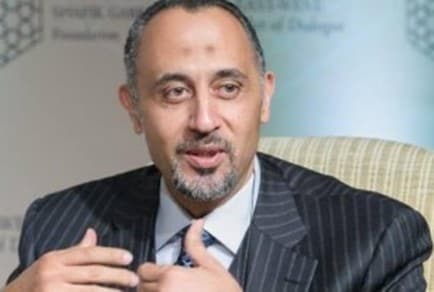In an April 29, 2021 article titled 'Can There Be Peace in the Middle East,' Saudi journalist and businessman Hussein Shobokshi notes that several hopeful developments have sparked cautious optimism in the region. The first of these developments is the recent reconciliation between the Gulf states and Qatar. Another is the turnaround in Turkey's position towards its longtime rival Egypt – manifest in a series of positive statements as well as practical measures – and the softening of Turkey's tone towards the Gulf states. Further positive signs, writes Shobokshi, are Saudi Arabia's moves towards ending the war in Yemen, and the recent interview given by Saudi Crown Prince Muhammad Bin Salman in which he said he seeks a good relationship with Iran.
Shobokshi concludes that, if peace between Israel and Arab countries is possible, a warming of the Arabs' relations with Turkey and Iran should certainly be possible, but warns that the positive statements and gestures must be accompanied by actual policies and concrete moves.

Hussein Shobokshi (Source: Shobokshi.cz)
The following are excerpts from the English version of the article published in the international edition of the London-based Saudi daily Al-Sharq Al-Awsat.[1]
SUPPORT OUR WORK

"The Middle East has been known traditionally for being a region of various conflicts, disputes and wars. For this reason, its people don't think it unlikely to see worrying developments between regional rivals unfolding over time. However, very cautious optimism has begun to spread throughout the region. This sentiment stems from several factors and developments. Perhaps the first and most important of them is the AlUla Summit in the Kingdom of Saudi Arabia, in which reconciliation was realized, as a positive shift was witnessed in the relationship between Saudi Arabia, the United Arab Emirates, the Kingdom of Bahrain and the Arab Republic of Egypt with the State of Qatar, after a schism that had gone on for years, with diplomatic relations gradually being resumed. The summit was a pleasant surprise to observers and those who follow politics, as well as the peoples of the region, because introductions or leaks did not precede the great reconciliation.
"Very shortly after that, the Turkish government's tone with the Arab Republic of Egypt began to change, and the former began sending various positive messages through Turkish officials' statements. That was followed by crucial steps, like the release of an official Turkish statement announcing the shutdown of media programs that attack Egypt, which had been broadcast from Turkish soil, and recognizing that the revolution of January 30 expressed the Egyptian people's desire for change and that Turkey hadn't understood this sufficiently at the time. Ankara then went on to express its absolute willingness to engage 'fully' in security, political and diplomatic collaboration with Cairo.
"Ankara continued to cozy up to Egypt in an astounding and perplexing manner, especially when compared to its preceding statements and stances on Egypt. One cannot describe the new Turkish position as anything but a total, 180-degree shift from that which had it previously adopted.
"Turkey's sugar-quoted words and friendliness were not directed at Egypt alone, as other surprising statements were issued by Turkish officials to the effect that the country wants to improve ties with the Gulf states and that it is serious about this matter. Turkey continued to make warm and soft statements on Saudi Arabia in particular, with Turkey saying that it respects the Saudi judiciary, all of its verdicts and the verdict issue by Saudi courts regarding the Jamal Khashoggi case, subsequently adding that it seeks good commercial and political ties with Saudi Arabia.
"Turkey's latest statements have been considered to have introduced a new era of major transformations in its stances, which shocked many profoundly. The cautious optimism in the region was strengthened on Wednesday, as Saudi Crown Prince Mohammed bin Salman gave an extremely significant televised interview in which he said he seeks a good and distinguished relationship with neighboring Iran and that he wishes it well. This statement follows the Saudi initiative to end the state of war in Yemen. This is an excellent opportunity to turn a positive and different page on the ties between Saudi Arabia and Iran, thereby increasing the degree of cautious optimism in the region.
"With peace between some Arab countries and Israel possible, as we have already seen, we can only imagine the possible positive implications that would ensue if the attempts at the restoration of ties between Saudi Arabia and the Arab countries with Turkey and Iran are successful- assuming that the states' sovereignty is fully respected.
"These can never stay the same... This is what politics has taught over time. There is an opportunity to re-evaluate the general situation in the region, look forward to a better tomorrow and build on shared interests, especially on the economic front, which could bring on benefits to all sides. Is the optimism overblown given the complexity of the reality on the ground? Answering this question now seems extremely difficult, as we are awaiting concrete steps that are no less significant and go beyond the positive statements made thus far.
"Until this happens, the difficult question remains there, awaiting a conclusive answer: Could peace be achieved in the Middle East? We await the days that answer this question practically and clearly."
[1] English.aawsat.com, April 29, 2021. For the Arabic version, see: aawsat.com, April 29, 2021.




